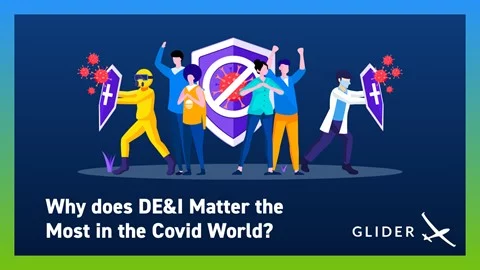Introduction
In the quest for a more equitable workplace, companies across industries are striving to reduce bias in their hiring processes. Bias, whether conscious or unconscious, can significantly impact the diversity and inclusivity of an organization. It affects who gets hired, who gets promoted, and ultimately, who thrives within a company. Artificial Intelligence (AI) in recruitment is emerging as a powerful tool to combat this issue, offering innovative solutions to create fairer and more inclusive hiring practices. This article explores how AI recruitment can reduce bias and foster a diverse workforce.
Understanding Bias in Hiring
Bias in hiring can manifest in many ways. It can be based on gender, race, age, socioeconomic background, or even appearance. These biases, often ingrained in human psychology, can lead to unfair hiring practices, where certain groups of people are favored over others without valid reasons. Traditional hiring methods, reliant on human judgment, are susceptible to these biases, making it challenging to ensure a level playing field for all candidates.
The Role of AI in Recruitment
AI recruitment leverages machine learning algorithms and data analytics to automate and enhance various aspects of the hiring process. By removing the human element from initial stages of candidate screening and assessment, AI can help mitigate biases that typically influence these processes. Here’s how AI can make a difference:
AI Screening
One of the first steps in the hiring process is screening candidates. Traditional methods involve human recruiters reviewing resumes and cover letters, a process ripe with potential biases. AI screening, however, uses algorithms to analyze candidate profiles and match them with job requirements objectively. AI can conduct conversations over SMS, WhatsApp, and social media, prequalifying candidates faster and more efficiently. By focusing purely on skills, experience, and qualifications, AI ensures that no candidate is overlooked due to unconscious biases.
Skill Tests
Vet skills, expertise, and fit in science-based assessments. Skill tests are a crucial part of the recruitment process, helping to determine whether candidates possess the necessary abilities for the job. AI-powered skill assessments use standardized tests to evaluate candidates’ technical and soft skills objectively. These tests eliminate the influence of biases that might arise during in-person evaluations. By providing a uniform assessment environment, AI ensures that all candidates are judged based on their performance, not on subjective criteria.
Interviews
Interviews are another critical stage where bias can creep in. Human interviewers, despite their best intentions, can be influenced by a candidate’s appearance, mannerisms, or even the way they speak. AI can transform the interview process through live coding sessions, virtual one-on-one interviews, or asynchronous video interviews. These AI-driven interviews focus on evaluating candidates based on their responses and problem-solving abilities, reducing the potential for bias.
DE&I Analysis
Diversity, Equity, and Inclusion (DE&I) are essential metrics for any organization committed to fostering a diverse workforce. AI can provide in-depth DE&I analysis, offering insights into the diversity composition of candidates across the hiring lifecycle. By tracking metrics like age, race, and sex, AI helps organizations understand their diversity landscape better and make informed decisions to improve inclusivity. This data-driven approach ensures that diversity goals are met without compromising on the quality of hires.
Departmental DE&I
Assessing departmental diversity is crucial to understanding how diversity varies across different parts of the organization. AI can analyze diversity at the departmental level, helping companies identify areas that need improvement. By discerning diversity across the organization, AI enables targeted interventions to promote inclusivity in departments that may be lagging behind. This holistic view ensures that diversity efforts are not just superficial but deeply embedded in the organizational fabric.
DE&I Performance
Measuring DE&I retention is key to gauging the effectiveness of inclusion efforts. AI can track retention rates among diverse groups, providing valuable insights into how well an organization is retaining its diverse talent. This information is crucial for identifying gaps in the inclusion strategy and making necessary adjustments to improve retention. By focusing on long-term DE&I performance, AI ensures that diversity efforts translate into a truly inclusive workplace.
Reducing Bias Through Data-Driven Decisions
AI recruitment relies on data-driven decisions, which are inherently less biased than human judgments. By analyzing vast amounts of data, AI can identify patterns and trends that might not be apparent to human recruiters. This capability allows AI to make objective decisions based on empirical evidence rather than subjective opinions. For instance, AI can highlight candidates who might have been overlooked due to unconventional career paths or gaps in employment, ensuring a more inclusive selection process.
Standardization of Hiring Practices
One of the significant advantages of AI in recruitment is the standardization of hiring practices. AI ensures that all candidates go through the same evaluation process, minimizing the risk of bias. Standardized assessments and interview formats provide a fair platform for all candidates, irrespective of their background. This uniformity not only reduces bias but also enhances the overall efficiency of the recruitment process, leading to faster and more accurate hiring decisions.
Eliminating Unconscious Bias
Unconscious bias is a significant challenge in traditional hiring methods. Even well-intentioned recruiters can be influenced by their subconscious preferences, leading to biased hiring decisions. AI, however, operates without such biases. By focusing solely on objective criteria, AI eliminates the influence of unconscious bias, ensuring a fairer evaluation of all candidates. This level of objectivity is crucial for creating a diverse and inclusive workforce.
Transparency and Accountability
AI recruitment offers a high level of transparency and accountability. All decisions made by AI systems can be tracked and audited, providing a clear rationale for why certain candidates were selected or rejected. This transparency is essential for building trust in the recruitment process, both within the organization and among candidates. It also allows companies to identify and rectify any biases that might exist in their AI systems, ensuring continuous improvement in the hiring process.
Conclusion
Reducing bias in hiring is not just a moral imperative but also a business necessity. A diverse and inclusive workforce drives innovation, enhances productivity, and improves employee satisfaction. AI recruitment offers a powerful solution to combat biases in the hiring process, providing objective, data-driven evaluations of candidates. With AI screening, skill tests, interviews, and DE&I analysis, companies can create fairer and more inclusive hiring practices. The standardization, transparency, and accountability offered by AI ensure that all candidates are given an equal opportunity to succeed, paving the way for a truly diverse and inclusive workplace.



